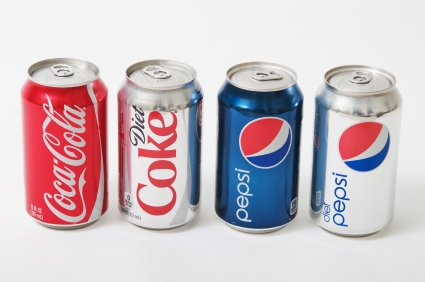Diet Cola ~ Could anything BE more deceptive?
Sometimes the truth hurts. This is one of those times when it should—to the core of our very midsection. Much as we’d love for it not to be true, diet soda is not at all what it’s cracked up to be, and the ill-fated issues left in its wake could be serious.
As refreshing as it may be to sip cold beverages on a warm summer day, the truth is that sugary beverages, commonly referred to by many names—Diet Pepsi, Dr. Pepper, Soda, Cola, Coke, Coca-Cola, or Pop, to name a few—supply more than 7% of all calories Americans consume.
What’s more, children today drink twice the amount of soda pop compared to the last decade. Additionally, adults have increased their intake by 25%.
Call it what we may, the word “diet” conjures up a sort of jubilation, that “ahhh” kind of pleasure we feel when the top pops and our mouths take in the crisp, cool, sizzling suds. We’ve made a great choice, we convince ourselves: I’m actually losing weight drinking this!
The average American drinks nearly two cans of soft drinks a day. And thanks to clever advertising, not only do they frequently crave the caramelized concoction; they’re also adding pounds that could contribute to a number of health issues.
Recent studies indicate that diet sodas, for example, increase the risk of stroke, while both diet and regular sodas have links to obesity, kidney damage, and certain cancers. Regular soft drinks have been linked to elevated blood pressure.
That said, however, while studies point to possible concerns, they have yet to definitively agree that sodas do, or don’t, pose a health risk. So what’s a pop-drinker to do? For starters, particularly if you drink a lot of soft drinks, dig into the research before dismissing it altogether. Is there something the beverage industry may be hiding that could harm you and your loved ones?
2. Persons who consume diet foods often are more likely to overeat because their bodies think it is eating sugar, which in turn increases cravings.
3. Diet sodas actually are worse for the body than regularly sweetened sodas. Who knew?
4. Diet sodas raise the risk for Type 2 Diabetes more, even, than regular soda.
5. Artificial sweeteners send out a signal that sugar is on the way. When no sugar is found, they pocket fat, in addition to making sweeteners even more addicting.

 Heart Rate Variability Explained: How Dr. Torkil Færø’s Pulse Cure Boosts Your Health
Heart Rate Variability Explained: How Dr. Torkil Færø’s Pulse Cure Boosts Your Health Are You Magnesium Deficient? Here’s Why It Matters
Are You Magnesium Deficient? Here’s Why It Matters The Power of Walking
The Power of Walking Tara
Tara
Leave a Reply